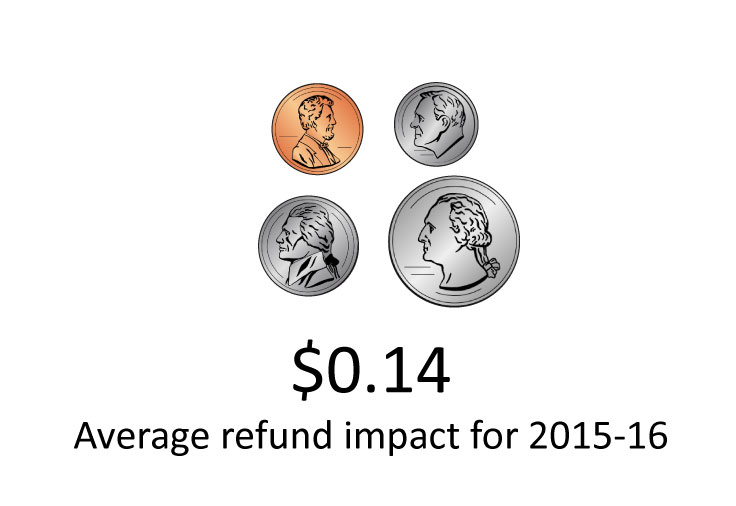
This article is part of our look at potential refunds from the Taxpayer's Bill of Rights. Learn more about how TABOR works here.
Title: HB15-1236 Tax Credit For Improving Energy Efficiency
Sponsors: Rep. Faith Winter (D-Westminister)
Status: Introduced and assigned to the House Transportation and Energy and Finance committees on Feb. 19. The Transportation and Energy Committee referred an amended version of the bill to the Finance Committee on March 5. The Finance Committee referred an amended version of the bill to the Appropriations Committee on April 22. The Appropriations Committee referred an amended version of the bill to the whole House on April 29. The House passed its third reading of the bill on April 30 and it was introduced to the Senate Finance Committee that day. The Senate Finance Committee killed the bill on the next day, May 1.
What the bill would have done: Homeowners who make energy efficiency improvements to their existing homes that result in at least 20 percent less energy use get a tax credit. Owners of new homes who achieve certain levels of energy savings or some green certifications also get a tax credit. The owners of any new affordable housing projects also get a tax credit if their project meets some green standards.
How it would have affected your refund: This bill would reduce the average taxpayer refund by 14 cents in the fiscal year 2015-16.
What's being said about this bill:
The National Law Review said on March 10 that this bill is unlikely to make it on to the governor's desk.
Austin Owens, in his opinion piece for the Aspen Times:
This bill includes a larger tax-credit cap for the construction and renovation of low-income apartment buildings and affordable-housing projects, further benefiting smaller developments that have experienced financial struggles with limited funds. It makes economic sense to provide incentives for instituting positive change by lowering the market barrier to make energy-efficient materials and technologies more accessible while creating jobs and growth in the clean-tech industry.
Jerry Unruh, in his letter to the editor for the Gazette on April 20:
Fortunately, there is a bill in the Colorado Legislature, HB 1236, that would provide a tax credit incentive for the construction and renovation of highly efficient buildings. The credit is even larger for lower-income properties, helping reduce energy bills for those that need it most.
This is the kind of smart, 21st-century initiative we need to employ in Colorado. Energy is a building's highest expense, and utilizing more efficiency means both reducing that cost and improving the building's overall quality. Efficient buildings tend to have healthier air, more productive tenants, and are better places to live, play, and work.








